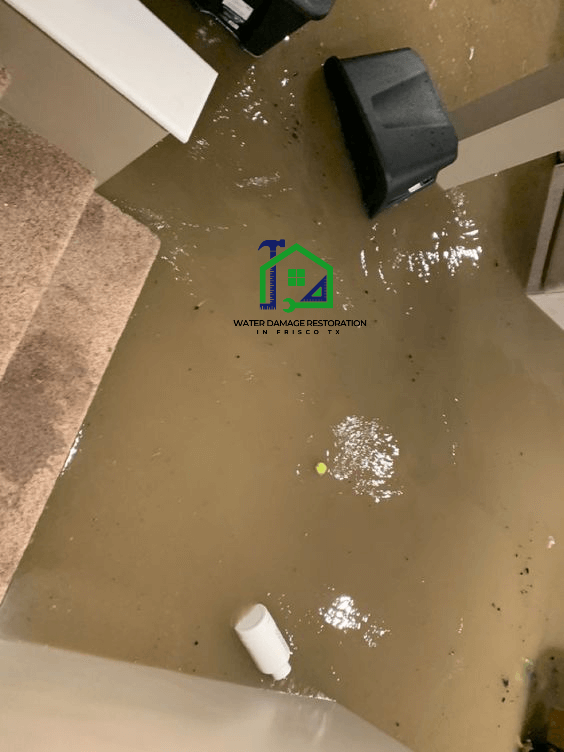Temporary bridges play a vital role in improving infrastructure, especially during construction or repair projects in cities like Charleston, WV. They ensure smooth traffic flow over obstacles like rivers and roads, supporting economic activity by minimizing disruptions. These bridges provide flexible, durable solutions while permanent structures are being developed, contributing to urban planning and economic growth.Engineers prioritize safety by adhering to strict standards and using durable materials, ensuring that the bridges remain secure and functional. Technological advancements have enhanced the design and efficiency of temporary bridges, making them quicker to install and more durable.Environmental considerations are also key in temporary bridge construction, with efforts to use sustainable materials and minimize impact on ecosystems. Additionally, community engagement ensures that local residents' concerns are addressed, fostering support for infrastructure projects.Overall, temporary bridges enhance connectivity, support economic vitality, and offer environmentally conscious solutions during periods of infrastructure transition.
Charleston, WV, United States, 10th Oct 2024 - Temporary bridges play a crucial role in enhancing the infrastructure of Charleston, WV, especially during construction or repair projects. They provide essential access over obstacles like rivers and roads, ensuring that traffic continues to flow smoothly. These bridges are not just quick fixes; they are engineered for safety and durability, allowing for the transport of goods and services without significant delays. By minimizing disruption, temporary bridges help maintain the city’s economic vitality while long-term solutions are being developed, ultimately supporting a more robust infrastructure for the future.
Importance of Temporary Bridges in Urban Planning
Temporary bridges are essential in urban planning, especially in rapidly growing cities like Charleston, WV. They offer a flexible solution to transportation needs during construction or repair projects, providing vital connectivity over obstacles such as rivers, roads, or railway lines. This ensures that residents and businesses maintain access to essential services and routes, minimizing disruptions to daily life. The strategic placement of temporary bridges allows planners to implement infrastructure upgrades without halting traffic flow, making them invaluable during periods of transition.
In addition, these bridges often serve as a stopgap while more permanent structures are designed and constructed. By prioritizing the movement of goods and services, temporary bridges play a critical role in sustaining economic activity in the region. Their presence also signals to residents that infrastructure improvements are underway, instilling confidence in the city's commitment to enhancing connectivity and public safety. Thus, temporary bridges contribute significantly to urban planning by promoting accessibility and economic growth.
Safety Standards in Temporary Bridge Design
Safety is paramount in the design and installation of temporary bridges. Engineers must adhere to strict safety standards to ensure that these structures can support the intended loads while providing a secure passage for vehicles and pedestrians. Materials used in construction must be durable and weather-resistant, capable of withstanding the elements and the stresses of continuous use. Regular inspections and maintenance checks are also crucial to identify potential weaknesses or issues before they become significant hazards.
Moreover, these bridges are designed with the understanding that they may be in place for an extended period, sometimes even years, while permanent solutions are developed. Therefore, engineers must incorporate features that enhance safety, such as guardrails, proper signage, and lighting. Public awareness campaigns can further ensure that drivers and pedestrians understand the bridge's temporary nature, promoting safe usage. In this way, temporary bridges maintain not only functionality but also the highest safety standards throughout their operational lifespan.
Economic Benefits of Temporary Bridges
The economic impact of temporary bridges in Charleston, WV, is significant. By facilitating uninterrupted access during construction or repair projects, these structures help keep local businesses thriving. When roads are blocked or access is restricted, it can lead to lost revenue for businesses that rely on foot traffic or deliveries. Temporary bridges mitigate these risks, allowing customers to reach shops and services without detours or delays.
Additionally, these bridges support the timely completion of construction projects, which can have long-term economic benefits. By reducing the duration of road closures and construction timelines, temporary bridges can help speed up the overall infrastructure improvement process. This efficiency can attract new investments and encourage economic development in the area. In essence, temporary bridges are not just short-term solutions; they are crucial components that contribute to Charleston’s economic vitality and growth.
Environmental Considerations
While temporary bridges serve as essential infrastructure solutions, their environmental impact requires careful consideration. Effective planning is crucial to ensure that the installation and usage of these bridges do not disrupt local ecosystems or wildlife habitats. Engineers and city planners collaborate to minimize disturbances, especially in sensitive areas like rivers or wetlands. Choosing sustainable materials for construction can significantly reduce the carbon footprint of these structures. Moreover, considering the long-term environmental implications can guide the design of more permanent solutions, allowing Charleston to enhance its infrastructure while safeguarding natural resources for future generations.
- Environmental Impact Considerations: Temporary bridges play a crucial role in infrastructure, yet their environmental consequences cannot be overlooked. Careful assessment during the planning phase ensures that potential harm to local ecosystems, wildlife, and natural habitats is minimized throughout installation and usage.
- Collaborative Planning Efforts: Engineers and city planners must work together to strategize the placement and design of temporary bridges. This collaboration is vital, particularly in sensitive environments like rivers and wetlands, where minimizing disruption can help protect delicate ecosystems and maintain biodiversity.
- Sustainable Material Choices: The selection of construction materials for temporary bridges can significantly influence their environmental impact. Opting for sustainable, eco-friendly materials helps lower the overall carbon footprint associated with these structures, contributing to more environmentally responsible infrastructure development.
- Long-Term Environmental Considerations: Beyond immediate use, temporary bridges should be evaluated for their long-term environmental effects. Understanding these implications can guide engineers and planners in designing more permanent solutions that are better integrated into the surrounding environment and contribute to sustainable development.
- Preserving Natural Resources: By prioritizing eco-friendly practices in the planning and construction of temporary bridges, Charleston can enhance its infrastructure while safeguarding natural resources. This balanced approach ensures that future generations can benefit from both robust infrastructure and preserved ecosystems.
Community Engagement and Feedback
Community engagement is vital in the planning and implementation of temporary bridges in Charleston, WV. Local residents often have valuable insights into traffic patterns, safety concerns, and the potential impacts of construction on their daily lives. By involving the community in discussions about temporary bridge placement and design, city planners can ensure that these structures meet the needs of those they serve.
Moreover, soliciting feedback from residents helps to foster a sense of ownership and collaboration between the city and its citizens. When residents feel heard and valued, they are more likely to support infrastructure projects, including temporary bridges. Regular updates and communication about project timelines and benefits can also help maintain community trust and enthusiasm, ultimately leading to more successful outcomes for future infrastructure initiatives.
Technological Advancements in Bridge Engineering
Advancements in technology have significantly improved the design and construction of temporary bridges. Modern engineering techniques allow for the creation of structures that are not only faster to install but also more robust and reliable. Innovations such as modular designs enable sections of the bridge to be pre-fabricated off-site, reducing construction time and minimizing disruption to traffic and the surrounding area.
Additionally, the use of advanced materials, such as high-strength composites, enhances the durability and lifespan of temporary bridges. Engineers can also utilize simulation and modeling software to predict how these structures will behave under various conditions, ensuring optimal safety and performance. As technology continues to evolve, the future of temporary bridges in Charleston looks promising, with the potential for even more efficient and effective solutions to infrastructure challenges.
Conclusion
Temporary bridges are essential for improving infrastructure, offering flexible solutions during construction and emergency situations. They provide crucial access to areas in need while minimizing disruption to ongoing operations. With advancements in design and materials, temporary bridges can be both durable and eco-friendly, ensuring that they meet the diverse needs of communities like Charleston, WV. These structures play a pivotal role in enhancing connectivity and supporting economic growth, making them a valuable asset to infrastructure projects.
At E&H Manufacturing, we are committed to delivering high-quality temporary bridge solutions tailored to your specific needs. Our expertise in engineering and manufacturing ensures that every project is executed with precision and care. For inquiries or to learn more about how our temporary bridges can benefit your infrastructure projects, reach out to us today.
E & H Manufacturing Inc.
2722 Pennsylvania Ave, Charleston, WV 25302, United States
+13043449875
https://eandhmanufacturing.com/
Media Contact
Organization: E & H Manufacturing Inc.
Contact Person: E & H Manufacturing Inc.
Website: https://eandhmanufacturing.com/
Email: Send Email
Address:2722 Pennsylvania Ave, Charleston, WV 25302
City: Charleston
State: WV
Country:United States
Release id:18245
The post How Temporary Bridges Improve Infrastructure appeared first on King Newswire. It is provided by a third-party content provider. King Newswire makes no warranties or representations in connection with it.









